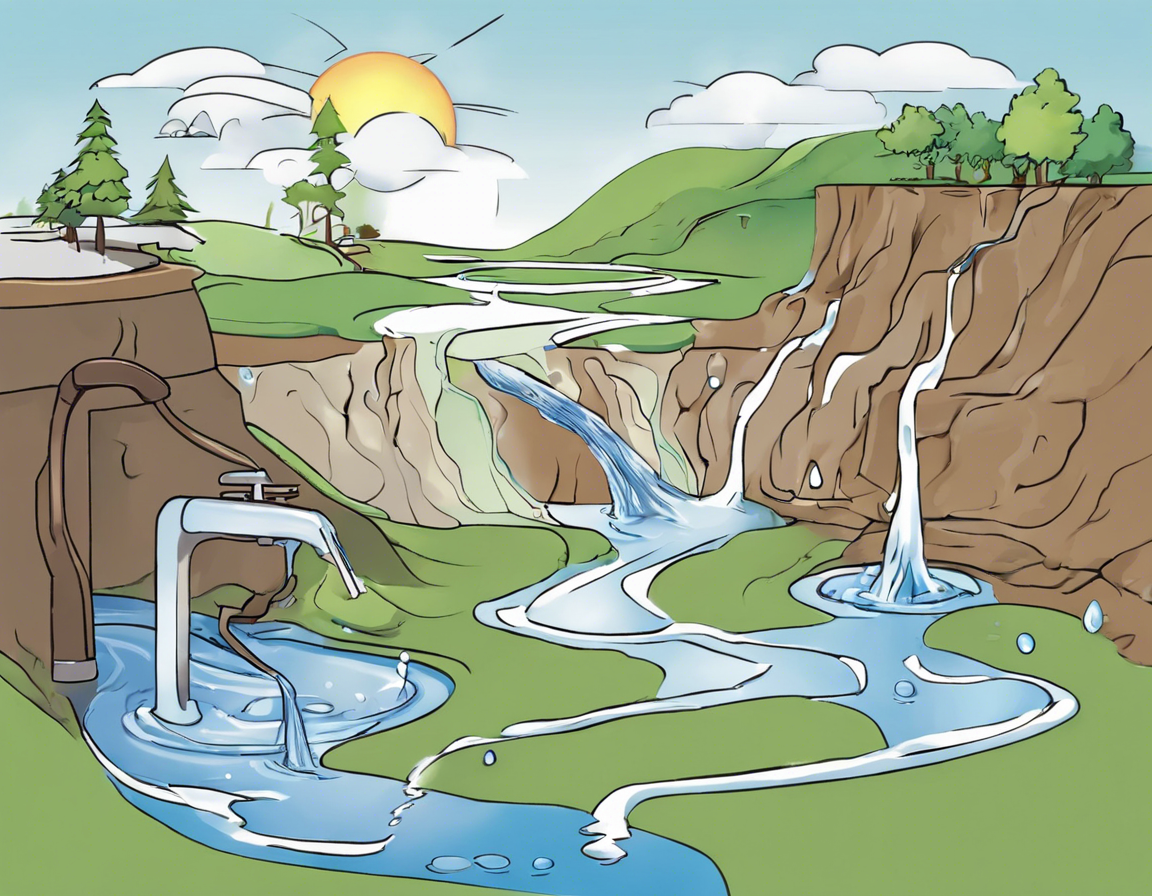Water is an essential resource for life on Earth, and ensuring access to clean and reliable water sources is a critical concern for both environmental sustainability and human well-being. As the world’s population continues to grow, the demand for water is increasing, putting pressure on existing sources. In this blog post, we will explore the concept of water as a renewable resource and its importance in sustainability efforts.
The Importance of Water as a Renewable Resource
Water is often referred to as a renewable resource because it is naturally replenished through the water cycle. The water cycle involves the evaporation of water from the Earth’s surface, its condensation into clouds, and its eventual return to the Earth as precipitation. This constant process ensures that water is continuously available for human consumption, agriculture, industry, and other uses.
Sustainable Water Management
Sustainable water management is crucial for ensuring the availability of clean water for future generations. This involves preserving, protecting, and efficiently using water resources to minimize waste and pollution. Sustainable water management practices include:
- Conservation: Encouraging the responsible use of water through efficient technologies and practices.
- Water recycling: Treating wastewater for reuse in non-potable applications like irrigation.
- Protecting water sources: Preventing contamination of water bodies through regulations and monitoring.
- Investing in infrastructure: Developing and maintaining water treatment and distribution systems to ensure access to clean water.
Challenges in Managing Water Resources
Despite being a renewable resource, water faces numerous challenges that threaten its availability and quality. Some of the key challenges include:
Water Scarcity
Water scarcity occurs when the demand for water exceeds the available supply in a particular region. Factors such as population growth, climate change, and mismanagement of water resources contribute to water scarcity. In arid regions, water scarcity can lead to conflicts over limited water supplies and hinder economic development.
Water Pollution
Water pollution from industrial discharges, agricultural runoff, and improper waste disposal contaminates water sources and poses risks to human health and aquatic ecosystems. Pollution can result in eutrophication, the growth of harmful algal blooms, and the depletion of oxygen in water bodies.
Climate Change
Climate change is altering precipitation patterns and exacerbating water scarcity in some regions while increasing the frequency and intensity of floods and droughts in others. Adapting to these changes requires innovative water management strategies and investments in resilient infrastructure.
The Role of Individuals in Water Conservation
Individuals can play a significant role in conserving water and protecting water resources through simple everyday actions. Some water conservation tips for individuals include:
- Fixing leaks in faucets and pipes to prevent water waste.
- Using water-efficient appliances and fixtures to reduce consumption.
- Collecting rainwater for outdoor irrigation.
- Avoiding overwatering lawns and gardens.
- Being mindful of water usage habits in daily activities.
By adopting these practices, individuals can contribute to sustainable water management efforts and help ensure the availability of clean water for future generations.
The Future of Water Sustainability
As the global population continues to grow, the demand for water will increase, placing greater pressure on freshwater resources. Achieving water sustainability will require a concerted effort from governments, businesses, communities, and individuals to implement innovative solutions and best practices in water management.
Technologies for Water Conservation
Advances in water treatment technologies, desalination, and water reuse are helping to address water scarcity and quality issues. Smart water management systems that utilize data and analytics to optimize water use are also transforming the way water resources are managed.
Policy and Regulation
Regulations and policies play a crucial role in protecting water resources from pollution and overexploitation. Governments around the world are implementing water management plans, water pricing mechanisms, and water quality standards to ensure the sustainable use of water.
Public Awareness and Education
Raising public awareness about the importance of water conservation and sustainability is essential for fostering a culture of responsible water use. Educational campaigns, community outreach programs, and environmental initiatives can empower individuals to make informed choices about water consumption.
Frequently Asked Questions (FAQs)
1. Is all water considered renewable?
– While the water itself is renewable through the water cycle, groundwater sources can be depleted faster than they are recharged, leading to non-renewable situations.
2. How does climate change impact water resources?
– Climate change alters precipitation patterns, leading to droughts in some regions and floods in others, affecting water availability and quality.
3. What are some common sources of water pollution?
– Industrial discharges, agricultural runoff, improper waste disposal, and sewage are common sources of water pollution.
4. How can individuals contribute to water conservation efforts?
– Individuals can conserve water by fixing leaks, using water-efficient appliances, collecting rainwater, and being mindful of their daily water usage habits.
5. What are some innovative technologies in water conservation?
– Water treatment technologies, desalination, water reuse, and smart water management systems are among the innovative technologies in water conservation.
In conclusion, water is a renewable resource that is indispensable for life, and its sustainable management is essential for environmental preservation and human well-being. By implementing sustainable water practices, individuals and communities can contribute to the conservation and protection of water resources for future generations. Embracing innovative solutions and promoting awareness about water sustainability will be key to ensuring a resilient water future for all.

